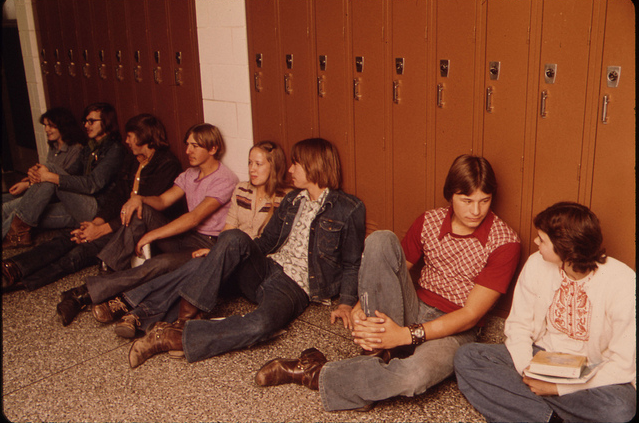
Being a high school teacher for 10 years has taught me that we all have a natural ability to detect someone who is being genuine with us and someone who, for some reason, is wearing a mask.
Students have this intuitive nature. When you are a teen entering high school, as I see with many of my students, most have not yet learned to put on a mask. They are honest, raw, real and if you are not real with them, they will know. By the end of high school though, through life experiences and played out dramas, many have securely put on the mask and iron suit and are ready to tackle the real world.
I wish we lived in a more raw world, one where the masks came off, at least sometimes; one where we try to live a more authentic life with each other. Through self-reflection and my interaction with my students, I’ve learned ways to live a more authentic life.
5 Ways I’ve Tried to Live a More Authentic Life
1. I found that the only way to have a genuine relationship with someone is to be vulnerable with them.
I see it with my students as well. Once I have the trust of my students, once they feel they can show who they really are in the classroom, that is when the best learning occurs. For me, when I’ve broken down a wall, had an intimate secret shared with me, or held someone crying, only then have I felt closer to them. Only then have I felt the relationship between us to be genuine. The only way to get to that point is to really get to know someone and to be vulnerable and accessible ourselves.
2. Value intangible items more than tangible ones.
What is real and important in this world are not the things. We don’t leave this world with things, nor are these items the most valuable ones we leave behind. Over the years, I’ve asked my students, what is, more valuable than leaving behind a sports car, a mansion, antique jewelry? Again, they inherently understand that what is truly real are those things we cannot grasp, such as lessons we pass on to our children, relationships that we’ve made, a legacy of goodness that makes an imprint on the world.
Over the years of teaching different subjects, I realize the core of learning is connecting; we are spiritual people. Once we realize this, we can be connected to each other again, and not to things. Those who I’ve met in life who value things more than people, tend to end up alone in this world. Their inability to connect causes them to attach to items rather than people. Even as babies, we need touch, we were made to be social beings and when we move away from this natural need we have inside, we become inauthentic to our spiritual selves.
3. To be authentic is to feel and to be real, to take off the mask that you may sometimes wear, the shield of armour that protects you.
I’ve witnessed students push into the discomfort to get to the core of who they are. Authenticity hasn’t always meant looking or feeling their best. Sometimes, their best authentic moments have been when they’ve stumbled, fallen and failed. For example, during heartbreak, death, loss, students have felt at their worst, but that is also when people have come together to comfort. They’ve rallied around each other, their genuine hearts open wide.
4. There is an element of vulnerability that exists in authenticity.
There is some perceived fear in this vulnerability, because of the possibility of being rejected, treated with coldness or even taunted. Those students who continue to be kind regardless of this potential “failure,” end up being some of the most genuine adults I’ve had the privilege of knowing. They continue to be who they are regardless of how people have reacted to them. They trust and love themselves. They continue to put themselves out there.
5. Authentic people are self-aware.
How do I present myself to the world? Do I like who I am? What is truly important to me? How do other people perceive me? Being self-aware has helped me grow to be more of who I am. For a long time, I worried (and sometimes still do) about how I put myself out there on social media, how I presented myself at work or with certain people I didn’t feel safe around. Self-reflection has been a good way to ensure that I am being true to me. Being aware of different aspects of my personality has allowed me to value all parts of myself, especially the parts others may not understand, and to love those parts more. Carving out the time to reflect, to check in with myself every few years, has allowed me to live authentically.
Being authentic isn’t safe, comfortable or even cool. It’s actually the opposite. It’s scary, uncomfortable, and awkward but I still wish we lived in this world. That instead of posturing to each other about how much smarter, stronger and confident we are than everyone else, we can put out our fragile selves forward, bare our souls and lay down our masks.
~
Author: Aileen Santos
Image: The U.S. National Archives/Flickr, Pixabay
Apprentice Editor: Lauren Robbins; Editor: Catherine Monkman











Read 0 comments and reply